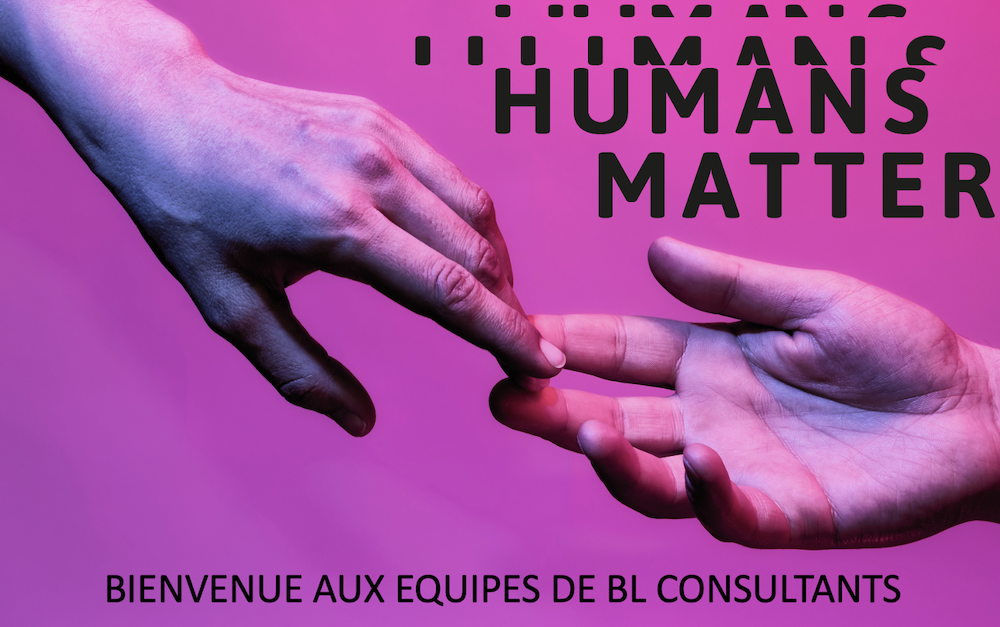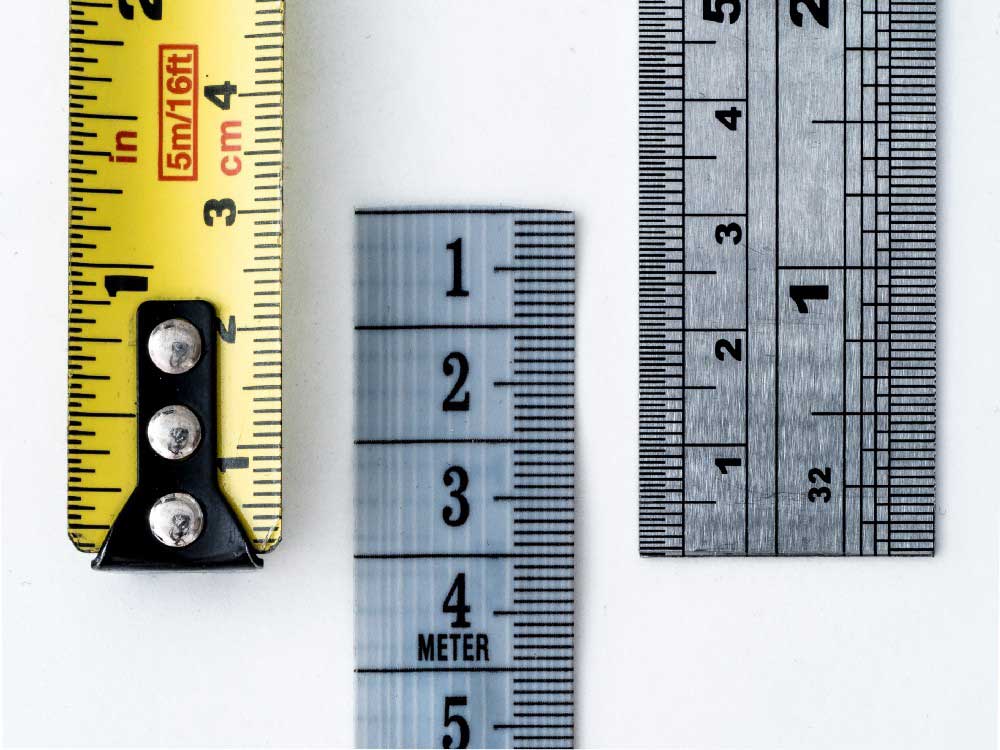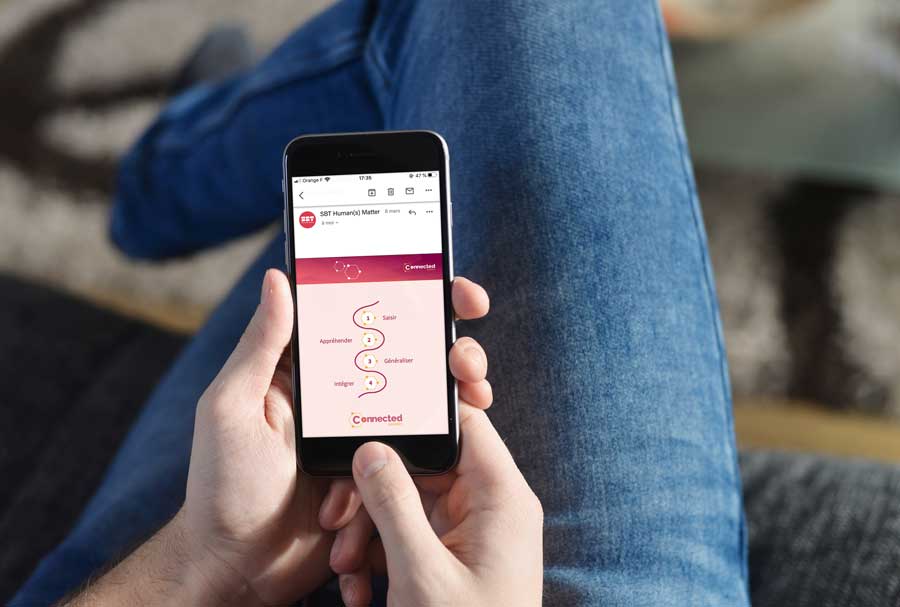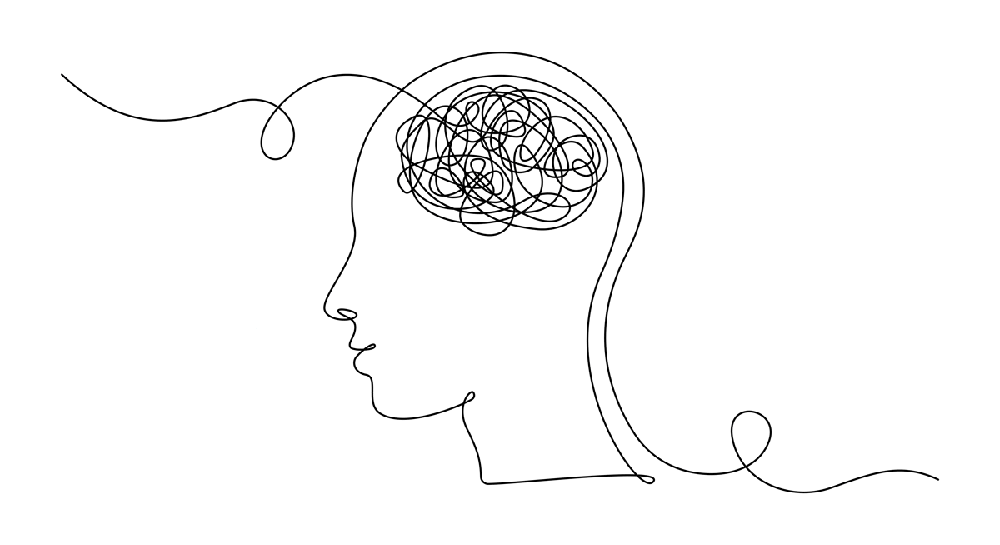The human factor fresk was designed to explain these phenomena. The human factor contributes to the achievement of a certain result in different degrees. For example, it can be considered responsible for both my inaction and my action. The human factor consists of psychological and cognitive elements that determine my ability to act. It is because I am a human being that I sometimes have difficulties in acting according to my own prescriptions.
Indeed, we may sometimes feel that we are not entirely in control of our actions, as if something is eluding us to change our behavior. I want to change, I just cannot. I know I have to change, but I cannot seem to take the plunge. Especially since the collective is not always inclined to shake up its ways of being and doing, which does not encourage each other to change. Are we inherently unable to live up to our beliefs, or can we do things differently?
We are indeed not absolutely rational beings: our actions are not always guided by a deep and measured reflection. Free and informed choice requires time and energy. If we actually took the time necessary to make rational decisions, we would only make a few of them. This is why our actions are most often guided by our emotions (Damasio, 1991): we are more emotional than rational beings, and this characteristic has an impact on our decision-making power and on our ability to act.
Emotion is not absolutely rational, but it anchors in our memory associations between a stimulus and what this stimulus has provoked in us. For example, if I had an unpleasant experience with a certain food, I will remember the emotion when confronted again. My memory will recall this association because it will have been durably marked by the physiological reactions felt during the experience with the stimulus. Therefore, emotions are somatic markers that rationally guide our behaviors: faced with a stimulus that I have already encountered, if it was unpleasant, I will avoid it so as not to have to live the same experience again, or on the contrary, I will find it again to relive the pleasant emotion that I experienced (Damasio, 1991). Also, emotion allows me to protect myself against certain threats and to make a less dangerous choice. This is why we can sometimes “feel” that we have made the wrong decision: it is because this decision is the result of our emotions and is not the product of our sole reflection.
If emotion allows us to protect ourselves against certain dangers, the same is true of cognitive biases. The latter are in a way forms of altered thinking, which analyze the information sorted by the subject in a certain way. They are quick and intuitive ways of making judgments or decisions: in this sense, they are less laborious than analytical reasoning that would take into account all relevant information. This is what makes us tend to embellish things, or on the contrary to worsen them; what makes us lie to ourselves, what makes us wrongly attribute certain qualities or defects to ourselves; what makes us too optimistic, or too pessimistic…
Moreover, the very way our brain is wired leads us to make errors of judgment. Our brain manufactures narratives and processes the information it receives without us being aware of it. It works without our knowledge, in a way; it anticipates our decisions according to processes of which we are not aware, and these processes can be directed by our affects. This brain characteristic feeds our cognitive biases, which cause us to make errors of judgment and sometimes lack rationality. It is an internal limitation of our cognition that makes us see the world through a certain lens.
Also, it is automation, notably induced by what we feel, and not absolute rationality, that seems to be one of the causes of our decisions. Rationality would only be an ideal towards which we can aspire by activating the cognitive levers likely to bring about a lasting change in our behavior. Let us insist, however, on the fact that emotions and cognitive biases can lead to logical and rational reasoning: in a way, it is the lived experience that forges future decisions, which ensures our survival. It is when our emotions and cognitive biases interfere with our ability to act that they become problematic.
The human factor is not inevitable. We can learn how our cognition works and the factors that can influence it. Such learning allows us to take a step back from accomplished actions, but also from unfinished or even aborted actions. To do this, a step back is necessary: I must learn to watch myself.
In other words, it is by learning how cognition works – in general and in particular – that I will be able to start truly changing my behaviors. This is why the human factor fresk is situated at the crossroads of knowledge from the cognitive sciences and the pedagogical-cognitive engineering designed by Humans Matter. It is through an experiential journey that knowledge can be grasped and become a practice.
The fresk is presented as a common diagnostic tool allowing the participants to be introduced to metacognition by deepening a collectively chosen issue. The objective is to analyze a transition (professional, emotional, social, environmental, behavioral…) in progress or to come, in order to understand why this transition is still a transition, and not a completed evolution, having led to new behaviors.
The fresk creates an attentional space in which participants can share and confront their points of view, their perceptions and their representations concerning the chosen theme. This pooling allows us to evaluate our behaviors and what influences them: what motivates me to act, and on the contrary, what prevents me from doing so?
If knowledge does not act mechanically on us to directly influence our behaviors, we can nevertheless activate certain cognitive levers to initiate the desired evolution and reinforce our capacity to act. This is what the human factor fresk proposes by allowing participants to examine the meaning of the words used: when we talk about emotions, are we talking about the same phenomena? Language structures our way of seeing the world, and therefore our way of acting. However, although language is a common tool, the meaning of words is not always shared. The fresk is an opportunity to build a common vocabulary, in order to clarify for everyone the scope of the concepts used.
This work on meaning allows us to create a strong memory imprint, which is an essential way to change behavior. Because while memory crystallizes the associations automated by our emotions, it is also a tool of projection. The objective of the fresk is indeed to generate a new emotional charge within us, to make our ways of being evolve, by upsetting our representations, and thus by marking our memory positively. If my memory is affected by the experience of the fresk, then new emotions and new automatisms will gradually transform me.
The fresk is in fact a memory experience, because it has an impact on us by allowing us to weave new interactions. It is an innovative tool likely to trigger new behaviors, by allowing us to become aware of how our cognition works, and to focus our attention on what motivates us both intrinsically and collectively.
Get in touch with us to participate in the next event




